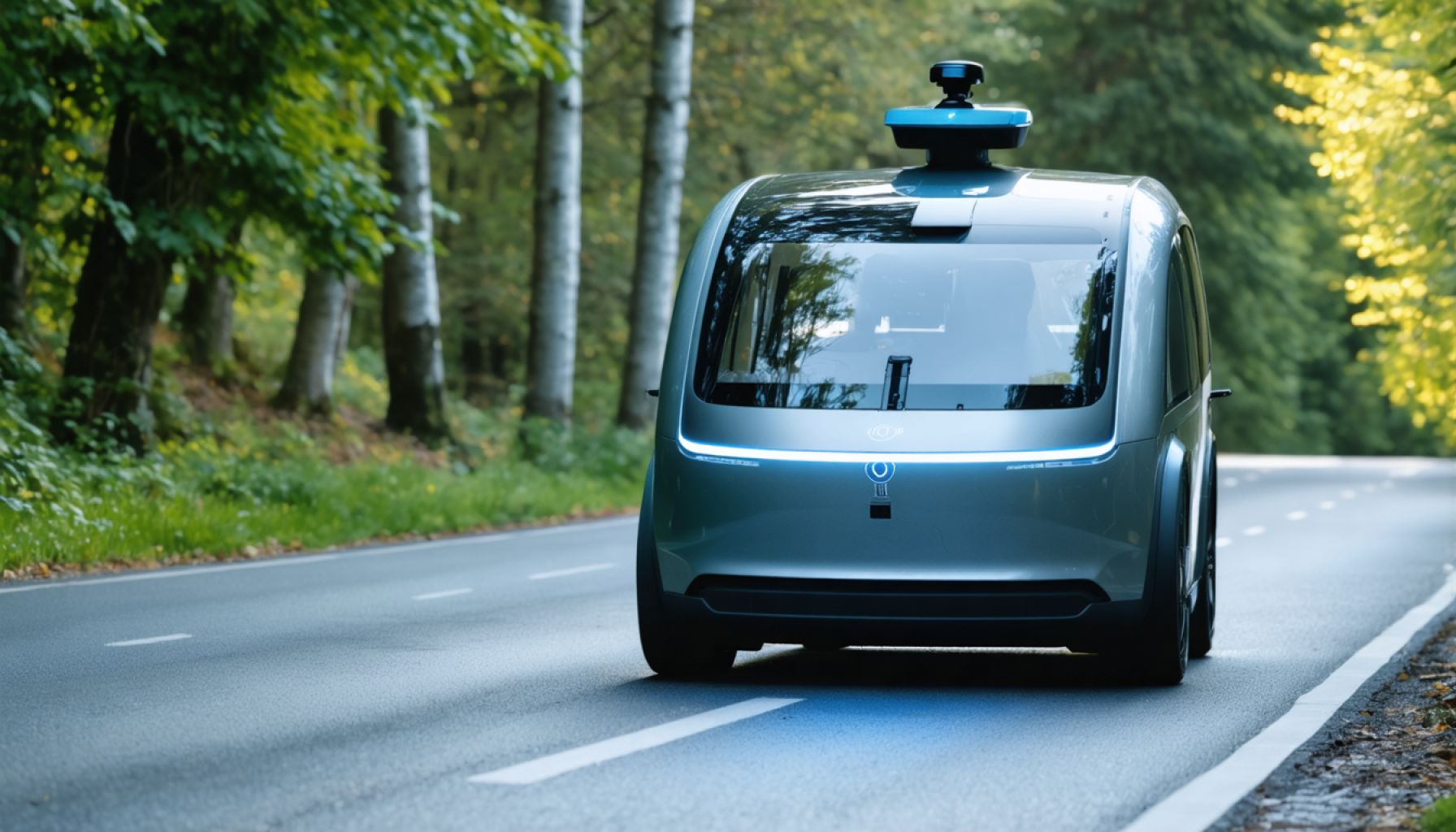- Pony.ai secures a rare permit for Level 4 autonomous vehicle testing on public roads in Luxembourg, marking the country as a key player in Europe’s self-driving future.
- Luxembourg serves as Pony.ai’s European base for research and testing, reflecting its strategic expansion beyond its origins in Guangzhou, China.
- The government’s commitment, led by the Minister for Mobility and Public Works, highlights a vision for autonomous driving that emphasizes safety, efficiency, and sustainability.
- Collaboration with local mobility leader Emile Weber aims to integrate autonomous vehicles into Luxembourg’s daily life, including public transport and tourism sectors.
- A Memorandum of Understanding between Pony.ai and the Luxembourg government underscores a framework to foster autonomous vehicle innovation.
- Pony.ai’s presence in Luxembourg symbolizes a shift towards autonomous mobility, inspiring broader advancements in transportation across Europe.
On the horizon of Europe’s dynamic landscape unfolds a thrilling chapter in transportation history: the rise of autonomous vehicles, with Luxembourg as its newfound incubator. Here, innovation and tradition meet as Pony.ai, a pioneering force in autonomous driving technology, secures a rare permit to conduct Level 4 testing on public roads. This pivotal moment marks Luxembourg as a burgeoning hub for driverless mobility in Europe.
Vast ambition fuels Pony.ai, rooted in its strategic expansion into this continent through establishing a research and testing base in Luxembourg in 2024. The company’s inception hails back to December 2016, when visionaries James Peng and Tiancheng Lou laid its foundation in Guangzhou, China. Now with operations crossing continents, Pony.ai aims to weave the thread of self-driving innovation into the fabric of global transportation.
Luxembourg, nestling between the rolling hills and historic architecture, unfurls itself as a canvas for technological transformation. The government, led by visionary minds like Yuriko Backes, Minister for Mobility and Public Works, is steadfast in embracing this evolution. They see autonomous driving not just as a method of moving from point A to B, but as a gateway to enhanced safety, efficiency, and sustainability.
Joined by Luxembourg’s mobility stalwart, Emile Weber, Pony.ai embarks on a journey that transcends simple experimentation. This collaboration leverages local expertise in public transport and tourism, aiming to seamlessly integrate self-driving cars into everyday life. Together, they envisage a future where Luxembourgers glide through streets in autonomous vehicles, their commutes quiet and roads intuitively managed by cutting-edge AI.
The tale of this collaboration is also one of foresight. Just a year prior, in March 2024, Pony.ai and the Luxembourg government etched their shared vision in a Memorandum of Understanding. This strategic alliance seeks to build a supportive framework, nurturing the very roots of autonomous innovation.
As Pony.ai rolls its prototypes onto Luxembourg’s streets, their presence there symbolizes more than a technological advancement; it heralds a transformation in human mobility. Herein lies the promise of autonomy: not merely to innovate, but to inspire, to enhance everyday experiences and to lead Europe into a bold era where roads are not just conduits for travel, but pathways to a smarter, safer future. Embrace this evolution—where Luxembourg leads, others are sure to follow.
The Rise of Autonomous Vehicles in Europe: Luxembourg Paves the Way
Overview
The development of autonomous vehicles (AVs) represents one of the most significant shifts in the transportation landscape in decades. Luxembourg’s emergence as a key player in this exciting frontier is underscored by Pony.ai’s landmark Level 4 testing permit. This positions Luxembourg at the forefront of driverless technology adoption in Europe.
Autonomous Vehicles: The Next Leap in Transportation
1. Levels of Autonomy: AV technology is categorized from Level 0 (no automation) to Level 5 (full automation). Level 4, which Pony.ai is testing, allows the vehicle to handle all driving tasks in specific conditions without human intervention, but a driver can still take control if necessary.
2. Real-World Use Cases: Luxembourg’s unique blend of urban and rural environments offers an ideal testing ground for AVs. In cities, AVs can refine their navigation and traffic-handling capabilities. Meanwhile, rural areas provide opportunities to evaluate efficiency in less dense settings.
3. Market Forecasts & Industry Trends: According to a report by Allied Market Research, the global autonomous vehicle market is projected to reach $556 billion by 2026, growing at a CAGR of 39.47% from 2019 to 2026. As a testing and development hub, Luxembourg could play a significant role in shaping Europe’s share of this market.
Luxembourg as a Testing Hub
– Government Support: Luxembourg’s proactive government, with leaders like Yuriko Backes, fosters a technological ecosystem conducive to AV testing. Policy frameworks support innovation while ensuring public safety.
– Strategic Partnerships: The collaboration between Pony.ai and Emile Weber highlights the importance of local expertise in facilitating a smooth integration of AVs into national transit systems, benefiting Luxembourg’s public transport and tourism sectors.
Controversies & Limitations
– Safety Concerns: While AVs promise reduced accidents due to human error, technological failures could present new challenges. Ensuring rigorous testing and safety protocols is essential.
– Regulatory Hurdles: Varying regulations across European countries could pose challenges for cross-border AV operations. Harmonization of policies will be key to broader European adoption.
Promising Future
– Sustainability: AVs have the potential to reduce emissions through efficient route management and integration with electric vehicle technology.
– Enhanced Mobility: Autonomous technology can improve access to transportation for non-drivers, such as the elderly and disabled, redefining public mobility.
Quick Tips
– Stay Informed: Follow updates on autonomous vehicle policies in Luxembourg for insight into future developments in the sector.
– Tech Integration: Embrace related advancements such as AI and IoT, which are integral to AV systems, to stay ahead in the tech landscape.
Conclusion
Luxembourg’s bold move to embrace autonomous vehicles could set a precedent for the rest of Europe. The country’s strategic partnerships and supportive regulatory environment position it as a pioneer in this evolving narrative. As Pony.ai rolls forward, the promise of enhanced safety, efficiency, and environmental benefits underscore the transformative potential of autonomous driving technology.
Explore more about autonomous technology and innovations at Pony.ai and Luxembourg Government .
